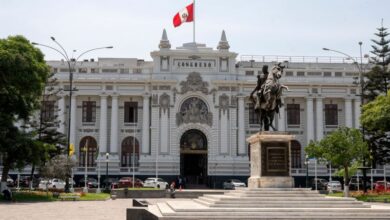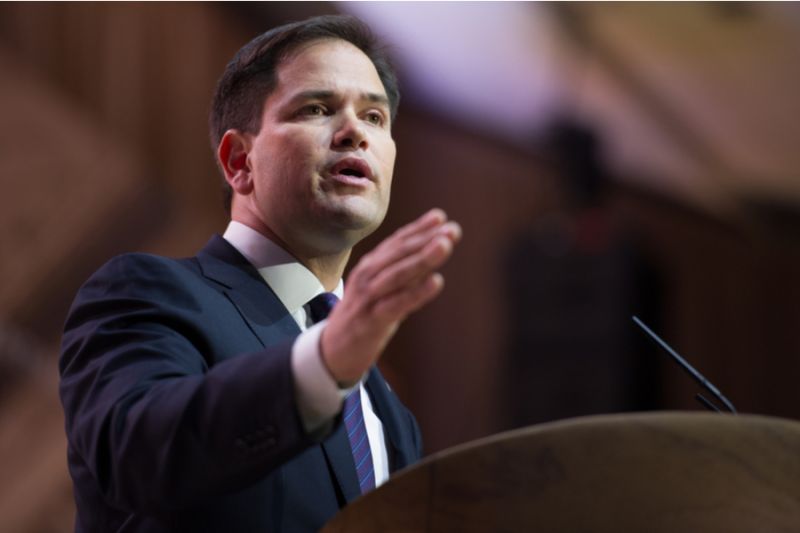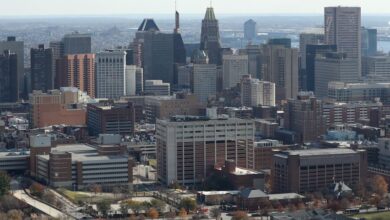‘Hollywood Priest’: PBS documentary tells life story of Father Bud Kieser
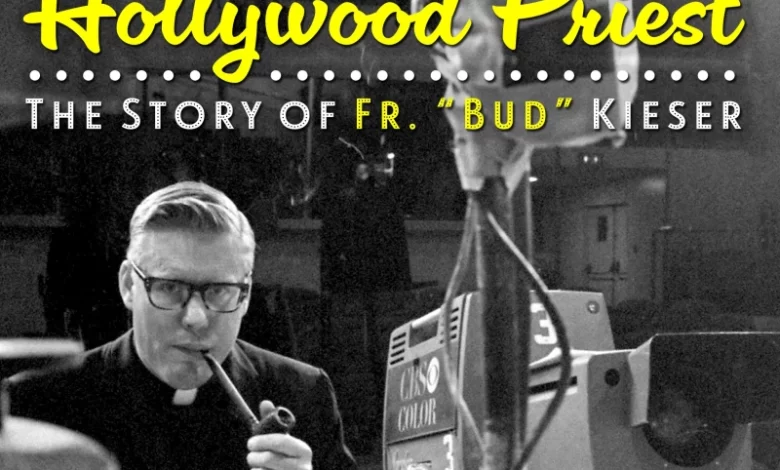
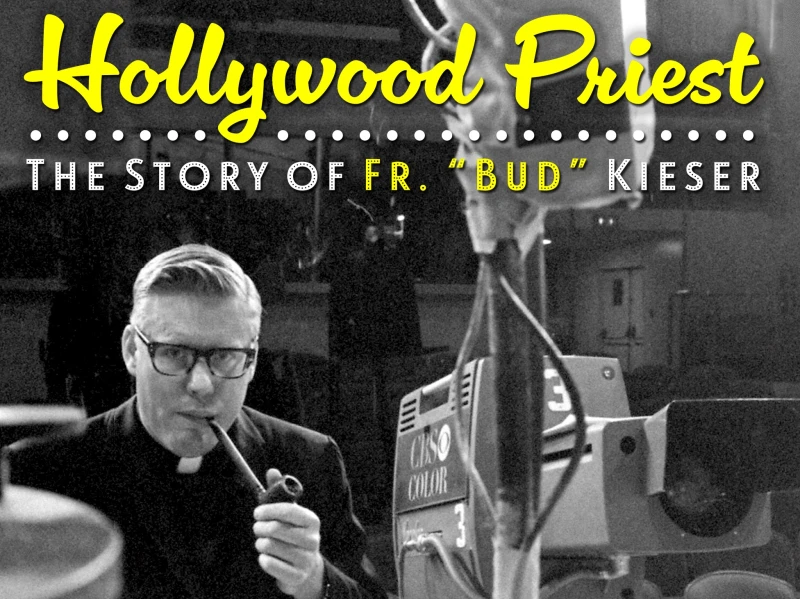 “Hollywood Priest: The Story Of Father ‘Bud’ Kieser,” is scheduled to air on PBS World at 5 a.m. and 11 a.m. Eastern time Wednesday, Dec. 25, and is also available on demand for subscribers to PBS Passport. / Credit: Photo courtesy of Paulist Productions.
“Hollywood Priest: The Story Of Father ‘Bud’ Kieser,” is scheduled to air on PBS World at 5 a.m. and 11 a.m. Eastern time Wednesday, Dec. 25, and is also available on demand for subscribers to PBS Passport. / Credit: Photo courtesy of Paulist Productions. CNA Staff, Dec 23, 2024 / 15:40 pm (CNA).
Father Bud Kieser stood 6 feet 7 inches tall and had a tendency to lean forward over people, especially when he wanted to get his way.
He often did, which is how he managed to make religious-themed content for television with well-known actors (paid little or no money,) through a production company he founded under the aegis of his religious order, the Paulist Fathers.
Once he popped the question, it was hard for the stars to turn him down.
“He never said it in so many words. But you kind of knew if you didn’t, you were going to hell,” is how Bob Newhart, who died in July, described it in a documentary about Kieser.
That documentary, “Hollywood Priest: The Story of Father ‘Bud’ Kieser,” is scheduled to air on PBS World at 5 a.m. and 11 a.m. Eastern time Wednesday, Dec. 25, and is also available on demand for subscribers to PBS Passport.
The fast-moving 55-minute film features interviews with prominent actors (Newhart, Martin Sheen, John Amos, Tim Matheson, Ed Begley Jr., Lee Purcell) who performed in episodes of “Insight,” a weekly dramatic anthology series that Kieser (1929–2000) produced from 1960 to 1983.
Getting them to give interviews on camera was easy, said Father Tom Gibbons, a Paulist priest who produced the documentary.
“Everybody wanted to talk about Father Bud,” Gibbons told CNA.
The actors said they were drawn to Paulist Productions projects by quality scripts and the opportunity to perform roles they couldn’t normally do — and by Kieser (whose last name sounds like “kaiser”), who was hard to resist.
The pay was paltry. But even that would often evaporate. Kieser liked to present a paycheck in person — and to hold onto it even while he seemed to be giving it.
“Usually, as you know, when you’re doing a documentary or an interview of any kind, you have like preset questions that you’re going to ask,” Gibbons told CNA. “And one of the questions we were going to ask is: ‘Did Father Bud let you keep the check?’ And every single person brought up Father Bud keeping the check without us bringing it up. It was like the first thing out of their mouths. They were all like, ‘Oh yeah, Father Bud, he never let us get the check.’”
Honest about struggles
In an interview with CNA last week, Gibbons said he got the idea for the documentary when he read Kieser’s autobiography during a 30-day Ignatian retreat in 2015.
“It was a really honest, forthright book. It was just — he was very honest about his journey,” Gibbons said.
That includes the time Kieser fell in love with a nun who wrote scripts for his shows. (The relationship was intellectual and emotional, not physical, according to Kieser’s account. He eventually ended it after she left religious life, though they remained friends.)
Gibbons was assigned to St. Paul the Apostle Catholic Church in Los Angeles. A parishioner there, Maria-Elena Pineda, is a documentarian who had heard Kieser preach. Gibbons suggested making a documentary about him, and she agreed.
One of the most memorable interviews, which may resonate with readers of a certain age, was with Marion Ross, whom Pineda described as “a genuinely lovely person” best known for playing Marion Cunningham, the mom on the 1970s and ‘80s television show “Happy Days” — whom the major character, Fonzie, often calls “Mrs. C” on the show.
Ross greeted the film crew at the door of her house in a friendly fashion.
“And we start setting up in the living room for the shoot. And meanwhile, Marion and her friend are in the kitchen preparing something,” Pineda told CNA. “And all of a sudden, we hear from the kitchen, ‘Children, come to the breakfast table for your pastries and coffee.’ And Father Tom and I look at each other, we’re like, ‘Mrs. C is calling us to the dinner table.’”
Another was with Martin Sheen, who spoke at some length (not included in the documentary) about his reversion to the Catholic faith during the 1970s.
Sheen described talking to Kieser about coming back to the Church.
“And he just said, ‘You know, I’m really back in the Church now and I’m just happy as a clam.’ And Father Kieser says to him, ‘Well, I hope you enjoy the honeymoon.’ And then Martin says, ‘Boy, how right that guy was,’” Gibbons said.
“I think it’s a great story about Father Kieser just being a great spiritual guide for people.”
Human condition
Father Ellwood “Bud” Kieser grew up in Philadelphia during the 1930s and 1940s. In 1950, after graduating from college, he joined the Paulists.
He was influenced by Venerable Fulton Sheen, a priest and later bishop and archbishop who managed to hold down a prime-time slot on national television during the 1950s.
Kieser began his television work with half-hour lectures before moving to dramatic stories meant to convey religious principles indirectly.
He was able to get “Insight” on television because local stations were required by the federal government to provide noncommercial programming. But during the late 1970s, he started feeling pressure from televangelists, who were willing to pay for the same time slots the priest had been getting free of charge. That helped end “Insight” in 1983.
As his regular television work waned, Kieser turned to other things, including working with the poor in Africa through Catholic Relief Services.
In 1989 Kieser made the movie “Romero,” about St. Óscar Romero, the El Salvador archbishop murdered in 1980 whom Pope Francis canonized in 2018. In 1996 he produced “Entertaining Angels: The Dorothy Day Story.”
Kieser was the founder of the Humanitas Prize, which honors screenwriters “whose work explores the human condition in a nuanced and meaningful way.”
The documentary emphasizes Kieser’s prayer life, including his many hours before the tabernacle. It also describes how he moved easily among non-Catholics and nonbelievers.
“When you go before the judgment seat of God, whether you’re an atheist or not, he’s going to ask one big question: Did you love?” Kieser said in an interview clip. “And we challenge people to love in this industry, and they responded.”
Gibbons spoke about Kieser’s life on “EWTN News Nightly” on Dec. 18:


